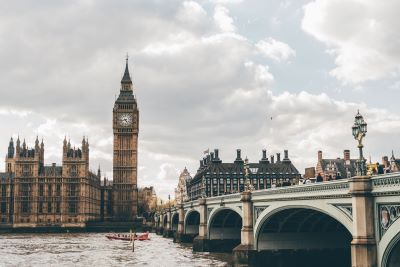Staying Healthy While Travelling To Europe
Traveling to Europe is an exciting event. There are so many places to visit, cuisines to eat, and people to meet. Traveling across Europe and visiting multiple countries is even more exciting. Whether you’re traveling solo, with friends, or as a family, it is essential to keep your health up (especially during Covid conditions). With the vaccines rolled out and people actively taking part in the vaccination drives, traveling, getting a Schengen visa, and going on holidays has become much more manageable.
Once you’ve made the necessary reservations, shopped for necessities, and planned the itinerary, it is time to think about how you will keep healthy throughout your trip. Some common health issues like fatigue, lethargy, dehydration, and more can get you in a sour mood.
Let us look at some ways that can help you stay healthy while traveling to Europe.
Hydrate:
Irrespective of the weather, it is essential to stay hydrated at all times. One of the first things that affect the body is dehydration. Many people do not drink enough water when traveling because they cannot find clean and sanitary toilets. However, dehydration can cause severe constipation, headaches, and lethargy.
Not only will you spoil your holiday, but you will regret visiting the country in the first place. If you are traveling during hot climates, you may have to increase your daily water intake to meet your body’s requirements. If unsure about the type of water you may get, it is best to carry a bottle or two of mineral water when you’re out and about.
Many people also prefer getting all this information down when they get expert help from an immigration lawyer in Birmingham during the initial documentation. Taking the necessary precautions, hydrating, and regularly using the toilets will help keep your body temperature regulated.
Follow COVID Protocol:
Many countries in Europe still advise that tourists should wear masks to protect themselves and others. It is best to keep additional masks (washable cotton ones), extra gloves, sanitizer wipes, and hand sanitizer gels or sprays. Some people also prefer wearing face shields in crowded areas to mitigate the risk of infection.
If you’re unsure about the Covid safety protocols in the country, you should speak to the best immigration lawyers before you start packing. Having this knowledge will not only protect you and others but also ensure you have a safe trip. Most immigration lawyers also have all the data about the coronavirus pandemic, the latest numbers, and other relevant tourist information.
Keep Active:
It is tough to stay active while traveling or on a plane. However, walking around even in the aircraft is essential to avoid getting stiff back and legs. If you’re driving across Europe, you should halt and take breaks, stretch your legs, use the toilet, grab a quick bite, and move ahead. Stopping regularly and keeping active will keep the blood flowing normally.
When exploring or sightseeing, you should avoid driving around too much, and instead opt for public transport like trains and buses. It would be best if you also walked to see all your preferred places while getting some activity done. If you’re staying in a place that has a swimming pool or at the beachside, finding time to take a dip and do a few laps will also help immensely. Getting stiff without any activity, could lead to personal injury, which will end up spoiling your holiday.
While you do not need to go running daily, taking the stairs whenever possible and walking to a nearby café or restaurant will work wonders and keep you active.
Balanced Diet:
You should splurge and try all the fabulous food! While you would be eager to sample all the cuisines in front of you, moderation is the key to a good gut. Instead of only gobbling down pastries, croissants, and desserts, take some time to grab a fruit, eat some veggies, and get some high-fiber food in your stomach.
When considering all the foods in front of you, you should try to follow a moderate diet close to the one you follow at home. If you do not eat carbs after 4 pm and eat fruits for breakfast, you should continue following it. While choosing your foods, you could also inquire about the nutritional and fat content. If you feel like overeating, you could still enjoy your meal but eat a light breakfast the next day.
Get Some Rest:
No one wants to rest when on holiday. However, taxing your body, staying up late each night, and not sleeping can adversely affect your health. Once your body acclimatizes to the time difference, it is best to opt for a similar rest routine as you do at home.

